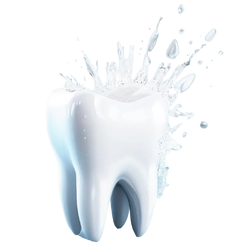- Konyaaltı / Antalya
- info@luscadent.com

Dental tartar, also known as dental calculus, refers to the hardened plaque that accumulates on the teeth over time. It is a common dental problem that can lead to various oral health issues if left untreated. Dental tartar cannot be removed by regular brushing and flossing alone, which is why professional dental cleaning is necessary.
Dental tartar is formed when plaque, a sticky film of bacteria and food particles, hardens and calcifies on the teeth. It usually appears as a yellow or brownish deposit near the gumline. Tartar buildup can cause bad breath, tooth discoloration, gum inflammation, and even gum disease if not addressed promptly.
Removing dental tartar is crucial for maintaining good oral health. Here are some key reasons why dental tartar removal is important:
Professional dental tartar removal, also known as scaling and root planing, is typically performed by a dental hygienist or dentist. The process involves the following steps:
Regular dental check-ups and professional cleanings are essential for preventing tartar buildup and maintaining optimal oral health. By following a consistent oral hygiene routine and visiting your dentist regularly, you can keep dental tartar under control and enjoy a healthy, beautiful smile.
Remember, a healthy smile starts with proper dental care!
Provide your contact information, dental history, and specific concerns.
We will contact you to set up your first appointment.
Our dentist will create a personalized plan and explain the associated costs.
You will be warmly welcomed upon your arrival at our clinic, and we will provide you with attentive care throughout your appointment.
We value your smile. Our goal is to provide our patients with the best dental care and support healthy, beautiful smiles.
Copyright ©2024 Lusca Dent | All rights reserved
Powered by Hakan Tapan